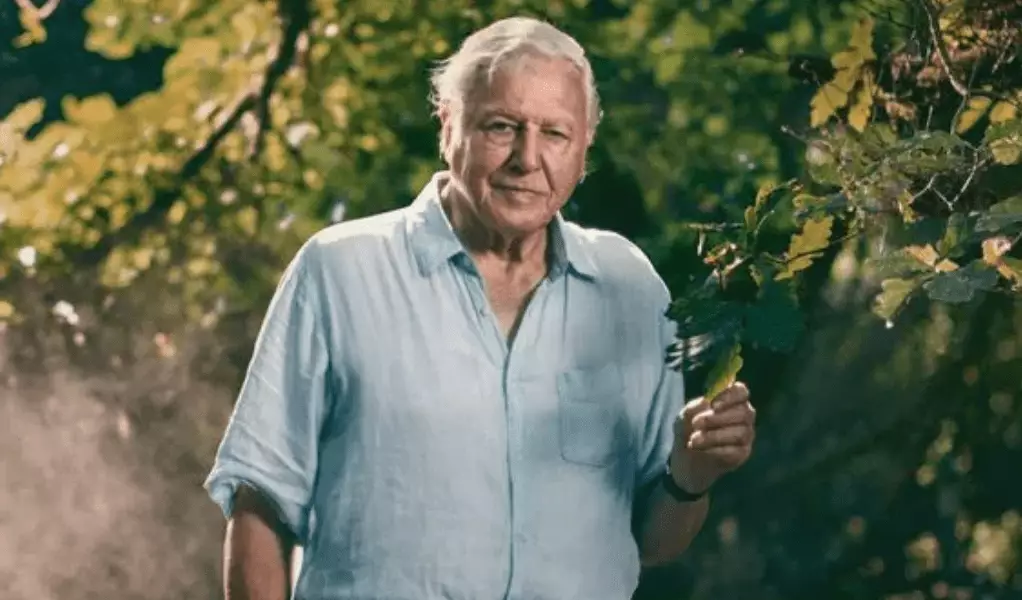The rise of artificial intelligence (AI) has indeed revolutionized various industries, yet this advancement brings with it a plethora of ethical dilemmas. In recent weeks, few incidents have highlighted the darker side of modern technology as glaringly as the saga involving David Attenborough, the renowned naturalist and broadcaster. The situation has sparked important discussions about identity theft, unauthorized cloning, and the potential ramifications of AI on public figures.
David Attenborough recently expressed grave concerns when he was informed that his distinctive voice had been cloned by AI technologies without his consent. This revelation came after an episode of his latest BBC series, *Asia*, where his voice was replicated using sophisticated algorithms. The BBC’s own experimentation demonstrated how close the artificial rendition sounded to the original, showcasing a chillingly precise mimicry that raised alarms for the veteran presenter. Attenborough described his sentiments as “profoundly disturbed,” underlining the emotional and ethical implications tied to the unauthorized use of one’s likeness and voice.
The implications of this incident extend beyond mere imitation. They question the boundaries of creative ownership and the integrity of an artist’s work. Attenborough, who has dedicated his career to presenting the truth about the natural world, feels that his identity is being appropriated by those who lack authentic association or permission. The AI-generated renditions, featured in various news outlets discussing unrelated topics such as the Ukraine-Russia conflict and political scandals, have breached the ethical line by associating Attenborough’s voice with narratives he has not endorsed.
The increasing frequency of voice cloning and likeness replication, particularly on platforms like YouTube, poses a significant challenge to copyright laws and personal privacy. Different proponents of AI cloning argue that such actions are harmless and may serve to entertain or inform, yet they overlook the potential for misuse and misrepresentation. As Attenborough noted, the unauthorized usage of his voice constitutes a theft of identity, creating ethical ripples across the media landscape.
This scenario mirrors other controversies where celebrities have found their likeness appropriated without their consent. For example, Scarlett Johansson faced a similar predicament earlier this year involving an AI voice named ‘Sky,’ leading her to take legal action against the creators. Such public figures have demonstrated a willingness to protect their identities and creative expressions, enhancing the necessity for stricter regulations surrounding AI utilization.
In response to these ethical dilemmas, legislative measures are beginning to take shape. The No Fakes Act in the U.S. aims to create accountability for those involved in creating such AI clones. This move is significant, as it recognizes the urgency of addressing identity theft in the era of digital technology and applies a framework to help protect individuals from misuse. However, the effectiveness of such laws rests upon their enforcement and public awareness, prompting further discussion on how best to navigate these new digital waters.
As AI technology matures, its applications will continue to expand, making it crucial for industries to establish guidelines that protect individuals from exploitation. The stark reality is that the technology has the potential to overshadow authentic voices, often conflating reality with artificiality.
The alarm bells rung by David Attenborough serve not just as a warning to public figures but also as an urgent call for society to confront the ethical implications of AI technology. The right to self-representation in an increasingly digitized world should remain inviolable. The developments in AI, while groundbreaking, necessitate an ethical framework that prioritizes the rights of individuals over technological prowess. As society moves forward, striking a balance between innovation and ethics will be critical, safeguarding dignity and integrity in the face of rapid technological change.

